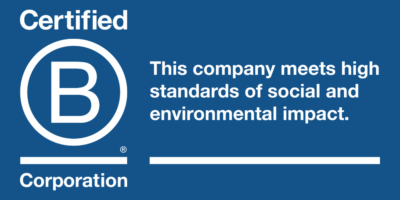Faith and Finance: The Proven Success of Catholic Mandate Investing
The question that many faith-based investors ask is straightforward yet profound: “Can I achieve competitive returns while remaining faithful to my Catholic values?” For years, conventional wisdom suggested a trade-off between values-aligned investing and financial performance. However, mounting evidence now challenges this assumption, demonstrating that Catholic mandate investing can deliver market-competitive returns while honoring Church teaching.
This post explores the performance of Catholic mandate investing compared to secular approaches, highlighting real-world success stories from Catholic institutions and presenting data that should give faith-based investors confidence in their investment choices.
Understanding Catholic Mandate Investing
Catholic mandate investing is grounded in the United States Conference of Catholic Bishops (USCCB) Socially Responsible Investment Guidelines, which emphasize that Catholic institutions should ensure their investments align with Catholic moral principles and social teaching. The approach recognizes that revenue should come from just means that respect human dignity and protect our common home.
The approach rests on two key principles:
- Financial Stewardship: Exercising responsible oversight of economic resources by seeking reasonable market returns
- Ethical Stewardship: Making investment decisions based on Catholic moral principles, recognizing the complexity of corporate activities
Unlike purely secular ESG (Environmental, Social, and Governance) investing, Catholic mandate investing is anchored in absolute moral principles derived from Church teaching rather than shifting contemporary values. Catholic investing applies a consistent moral framework that has remained stable across decades, providing clarity and consistency for long-term investment decisions.
The Performance Evidence: Catholic Values vs. Secular Investments
While performance alone shouldn’t be the only measure of success, comprehensive research provides compelling evidence of faith-based investment performance. The most significant study comes from the Christian Investment Forum (CIF), which analyzed 44 Christian faith-based funds over a 15-year period.
The Christian Investment Forum Study
The CIF’s 2020 analysis found that faith-based equity funds achieved 7.1% annualized returns compared to 6.3% for benchmark composites, representing a 13% outperformance advantage. Bond funds delivered 4.2% annualized returns versus 3.8% benchmark returns, showing consistent outperformance across asset classes.
These results held across multiple time periods, with faith-based funds demonstrating resilience through the Great Recession and early COVID volatility. The study concluded that “including faith based value criteria in the investment selection process can provide reasonable and competitive returns, allowing Christian investors the opportunity to invest according to their values while also acting in a financially sound manner”.
Academic Research Support
Academic studies provide additional validation for faith-based investing performance. Research by Lyn & Zychowicz found that “additional values-based screens used by faith-based funds do not hinder their performance relative to the market overall” and actually performed better than socially responsible investment funds generally.
A comprehensive meta-analysis of over 2,200 studies examining ESG-corporate financial performance relationships found approximately 90% of studies report nonnegative relationships, with the majority showing positive correlations between values-based criteria and financial performance.
Faith-Based vs Benchmark Performance
15-Year Annualized Returns (2005-2020) Show Competitive Performance
Key Finding: Faith-based equity funds outperformed benchmarks by 13% (0.8 percentage points), while bond funds showed 11% outperformance (0.4 percentage points) over the 15-year period.
Source: Christian Investment Forum 2020 Fund Performance Study (44 funds analyzed)
Real-World Success Story: The University of Notre Dame Endowment
The most compelling institutional example comes from the University of Notre Dame, which demonstrates that Catholic investing principles can achieve exceptional performance at scale. Under Scott Malpass’s leadership, Notre Dame’s endowment grew from $400 million in 1988 to over $15 billion by 2023 while maintaining strict adherence to Catholic investment guidelines.
Notre Dame’s endowment achieved 10% growth in 2024, demonstrating sustained performance excellence. The endowment has consistently ranked among the top-performing institutional portfolios globally while screening all investments for compliance with Catholic social teaching.


